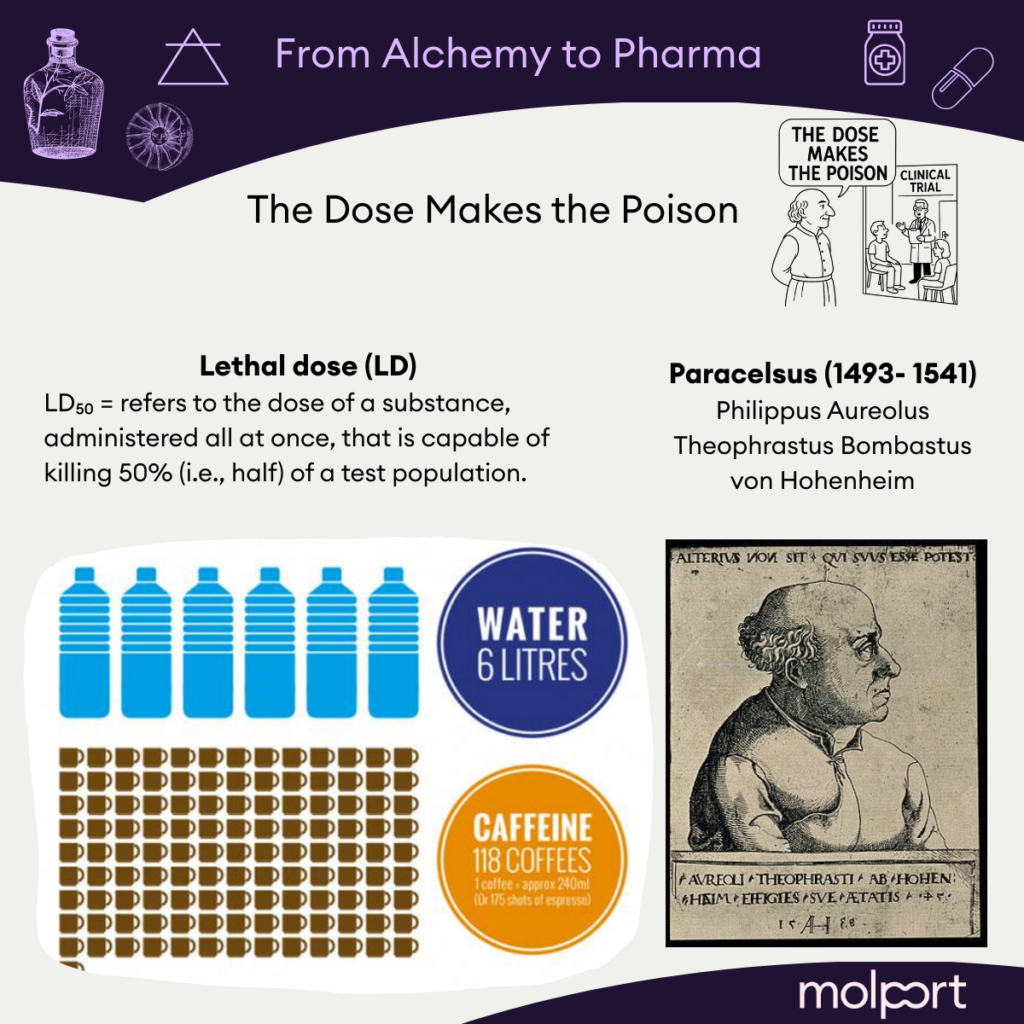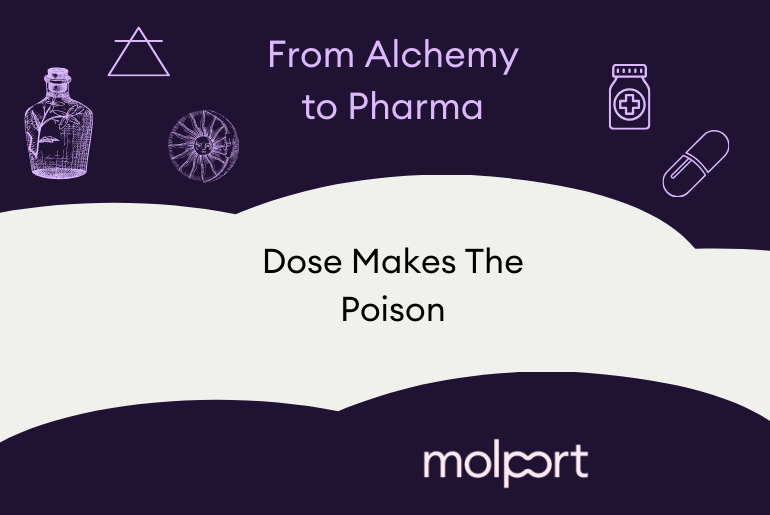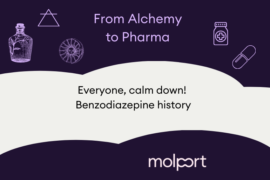Dose Makes The Poison
Today I’d like to tell you about a Swiss gentleman named Paracelsus.
Often called the “father” of modern toxicology and pharmacology, Paracelsus was the first to articulate a principle that still underpins toxicology today: “The dose makes the poison.” He argued that no substance is inherently toxic; it all depends on how much of it you take. Even substances we consider harmful can be beneficial in tiny amounts. Paracelsus famously used small doses of arsenic to treat patients with syphilis. And it’s not just poisons. Take water, for example, essential for life, yet potentially dangerous. Drinking 6–7 liters in a short time can overwhelm the body’s ability to regulate electrolytes and can be life-threatening.
Paracelsus’s pioneering belief that substances could heal or harm depending on dosage laid the foundational principle for modern drug development, shaping how clinical trials are designed today, with precise dose-ranging studies, safety thresholds, and efficacy evaluations all rooted in the idea that the right dose makes the difference between a remedy and a poison.







